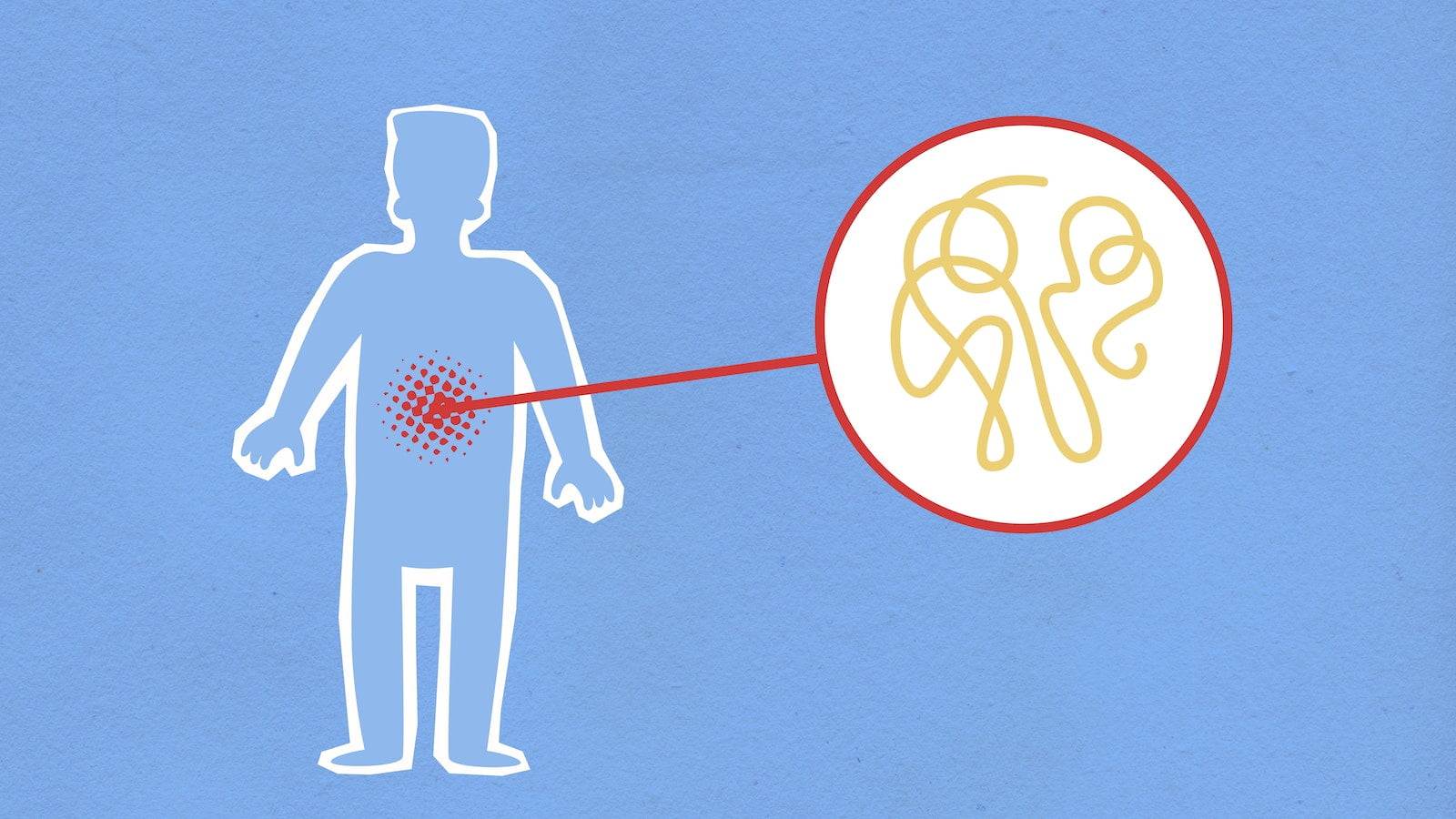Table of Contents
Introduction
The Mind-Body Connection
Our minds and bodies are interconnected, affecting our overall well-being. When thoughts and emotions align with our physical state, harmony and health emerge. Imbalance, however, may lead to physical and mental health issues.
Chronic Inflammation and Mental Health
Understanding the relationship between chronic inflammation and mental health is crucial for holistic mental health care. Recognizing inflammation’s role in mental well-being enables informed lifestyle choices to support physical and mental health.
Objective of the Blog Post
This blog post explores the impact of chronic inflammation on mental health, examining the underlying mechanisms connecting them. We aim to highlight ways to mitigate inflammation’s effects and improve mental health through lifestyle adjustments and appropriate interventions.
Understanding Chronic Inflammation
Definition of Inflammation
Inflammation is the body’s natural defense mechanism against harmful stimuli, such as pathogens, toxins, or tissue damage. In essence, it’s an immune response that aims to protect and heal the body by removing the harmful stimuli and facilitating the healing process.
Acute vs. Chronic Inflammation
While inflammation is a crucial part of the healing process, it’s important to distinguish between acute and chronic inflammation. Acute inflammation is a short-term response that typically resolves as the body heals. It is characterized by redness, swelling, heat, and sometimes pain or loss of function in the affected area.
On the other hand, chronic inflammation is a prolonged, often low-grade, immune response that can last for months or even years. Unlike acute inflammation, which is generally beneficial, chronic inflammation can have detrimental effects on the body, leading to various health problems and diseases.
Causes and Triggers of Chronic Inflammation
Several factors can contribute to the development of chronic inflammation, including:
- Persistent infections or lingering pathogens
- Exposure to environmental toxins or pollutants
- An autoimmune response, wherein the immune system mistakenly attacks healthy tissue
- Chronic stress, which can impair the immune system and promote inflammation
- Poor diet, particularly one high in processed foods, unhealthy fats, and refined sugars
- Lack of physical activity, which can contribute to a pro-inflammatory state
- Obesity, as excess adipose tissue can produce pro-inflammatory substances
Common Chronic Inflammatory Diseases
Chronic inflammation is linked to numerous health conditions and diseases1Inflammation, such as:
- Rheumatoid arthritis: An autoimmune disorder that causes joint inflammation, pain, and stiffness
- Inflammatory bowel disease (IBD): A group of conditions, including Crohn’s disease and ulcerative colitis, that cause chronic inflammation in the digestive tract
- Type 2 diabetes: A metabolic disorder characterized by high blood sugar levels and insulin resistance, often accompanied by chronic inflammation
- Asthma: A chronic inflammatory disease of the airways that leads to difficulty breathing, coughing, and wheezing
- Heart disease: Chronic inflammation contributes to the development of atherosclerosis, which can result in heart attacks or strokes

The Link Between Chronic Inflammation and Mental Health
Overview of Recent Research Findings
A growing body of research has established a strong link between chronic inflammation and various mental health conditions. These studies demonstrate that chronic inflammation can not only exacerbate existing mental health issues but may also contribute to the development of new disorders. This connection underscores the importance of addressing inflammation as part of a comprehensive approach to mental health care2The Role of Inflammation in Depression and Fatigue.
How Chronic Inflammation Can Lead to Mental Health Issues
Cytokines and Their Effects on the Brain
Cytokines are small proteins released by immune cells during inflammation. While they play a crucial role in the body’s immune response, an overproduction of pro-inflammatory cytokines can have negative effects on the brain. For instance, they can disrupt neurotransmitter function, alter brain chemistry, and impair neural communication, potentially leading to mood and cognitive disturbances.
The Role of the Immune System in Mental Health
The immune system and the brain are closely intertwined, with immune cells and molecules actively involved in maintaining brain health. Chronic inflammation can compromise this delicate balance, causing a cascade of changes that may ultimately affect mental health. For example, chronic inflammation can lead to the production of reactive oxygen species, which can cause oxidative stress and damage to brain cells.
Specific Mental Health Conditions Linked to Chronic Inflammation
Depression
Research has shown that individuals with chronic inflammation are at a higher risk of developing depression. Inflammatory markers, such as C-reactive protein (CRP), have been found to be elevated in people with depression. Moreover, some studies suggest that anti-inflammatory treatments can help improve depressive symptoms.
Anxiety
Similar to depression, anxiety has also been linked to chronic inflammation. Elevated levels of pro-inflammatory cytokines have been found in individuals with anxiety disorders, suggesting that inflammation may play a role in the development and progression of these conditions.
Cognitive Decline and Alzheimer’s Disease
Chronic inflammation has been implicated in cognitive decline and the development of Alzheimer’s disease. Inflammatory processes can lead to the accumulation of amyloid plaques and tau tangles, hallmark features of Alzheimer’s, and contribute to neuronal damage and loss.
Bipolar Disorder
Evidence suggests that individuals with bipolar disorder may exhibit higher levels of pro-inflammatory markers. Inflammation may play a role in the mood fluctuations and cognitive deficits commonly associated with the condition.
Schizophrenia
Research indicates that chronic inflammation may contribute to the development of schizophrenia. Elevated levels of pro-inflammatory cytokines have been observed in individuals with schizophrenia, and anti-inflammatory treatments have shown promise in alleviating some of the symptoms associated with the disorder.
Long-Term Effects of Chronic Inflammation on Mental Health
Mental Health Disorders
Chronic inflammation can increase the risk of developing mental health disorders such as depression, anxiety, bipolar disorder, and schizophrenia, due to the influence of pro-inflammatory cytokines on neurotransmitter function and mood regulation3Long-term inflammation increases risk of common mental disorder: a cohort study.
Cognitive Decline and Neurodegenerative Diseases
Chronic inflammation contributes to cognitive decline and neurodegenerative diseases like Alzheimer’s by damaging brain cells, disrupting synaptic connections, and promoting harmful protein accumulation. It can also negatively impact the blood-brain barrier, exacerbating inflammation and brain damage.
Preventing Long-Term Consequences
To prevent the long-term effects of chronic inflammation on mental health, adopt an anti-inflammatory diet, engage in regular physical activity, manage stress, and prioritize sleep. Addressing inflammation early can mitigate its harmful consequences on mental health and cognitive function.

Strategies for Reducing Chronic Inflammation and Improving Mental Health
Anti-Inflammatory Diet
An anti-inflammatory diet can help reduce chronic inflammation and support mental health. By incorporating certain foods and eliminating others, you can promote a healthier balance of inflammatory and anti-inflammatory substances in your body.
Foods to Include
To support an anti-inflammatory diet, consider incorporating the following foods:
- Fruits and vegetables: Rich in antioxidants and nutrients, aim for a variety of colors and types
- Whole grains: Such as brown rice, quinoa, and whole wheat
- Healthy fats: Found in avocados, nuts, seeds, and olive oil
- Omega-3 fatty acids: Present in fatty fish, like salmon, mackerel, and sardines, as well as walnuts and flaxseeds
- Lean protein: Including beans, legumes, tofu, and lean meats like chicken or turkey
- Spices and herbs: Turmeric, ginger, and garlic, for example, have anti-inflammatory properties
Foods to Avoid
To minimize inflammation, consider reducing or eliminating these foods:
- Refined carbohydrates: Such as white bread and pastries
- Processed and fried foods: Often high in unhealthy fats and added sugars
- Sugary beverages: Including sodas and sweetened fruit juices
- Red and processed meats: Linked to increased inflammation
- Alcohol: Excessive consumption can contribute to inflammation
Exercise and Physical Activity
Regular exercise and physical activity can help reduce chronic inflammation and improve mental health. Aim for at least 150 minutes of moderate-intensity aerobic activity or 75 minutes of vigorous-intensity aerobic activity per week, along with muscle-strengthening activities on two or more days per week.
Stress Management
Managing stress is essential for reducing inflammation and supporting mental health. Consider incorporating these stress-reduction techniques:
Deep Breathing Exercises
Deep breathing exercises, like diaphragmatic or box breathing, activate the parasympathetic nervous system, counteract stress, decrease stress hormones, reduce inflammation, and promote relaxation for improved mental well-being.
Yoga
Yoga combines physical postures, breathing techniques, and meditation for holistic stress management. Regular practice decreases pro-inflammatory markers, such as CRP and IL-6, while reducing anxiety and depression symptoms, increasing mindfulness, and enhancing emotional well-being.
Progressive Muscle Relaxation
Progressive muscle relaxation (PMR) involves sequentially tensing and relaxing muscle groups. PMR increases awareness of muscle tension, reduces pro-inflammatory cytokines, and improves mental health by alleviating symptoms of anxiety, depression, and insomnia.
Mindfulness and Meditation
Practicing mindfulness and meditation can help cultivate awareness of the present moment, reducing stress and promoting relaxation. Techniques like deep breathing, progressive muscle relaxation, and guided imagery can also be beneficial.
Cognitive-Behavioral Therapy (CBT)
CBT is an evidence-based psychotherapy that helps individuals identify and change negative thought patterns and behaviors, thereby reducing stress and improving mental health.
Social Support
Strong social connections can help buffer the effects of stress and promote mental well-being. Nurture relationships with friends, family, and community members, and seek professional support when needed.
Importance of Social Connections
Positive social interactions release oxytocin, counteract stress, reduce inflammation, and buffer against adverse mental health effects by providing emotional support, enhancing resilience, and fostering a sense of belonging.
Community Support Benefits
Community support systems like support groups, clubs, or religious organizations bolster the benefits of social connections by offering opportunities to share experiences, exchange coping strategies, and access resources for navigating challenges.
Building and Maintaining Connections
To leverage social connections and community support for reduced inflammation and improved mental health, individuals should:
- Nurture existing relationships through regular communication, empathy, and support.
- Develop new connections by engaging in social activities, volunteering, or joining interest-based clubs.
- Seek professional support, such as therapists or support groups, for specific mental health concerns.
- Utilize digital platforms, like online forums or social media, to connect with others and maintain long-distance relationships.
Sleep Hygiene
Prioritizing good sleep hygiene can help reduce inflammation and improve mental health. Aim for 7-9 hours of sleep per night, establish a consistent bedtime routine, and create a sleep-friendly environment.
Medical Interventions
In some cases, medical interventions may be necessary to address chronic inflammation and mental health issues:
Anti-Inflammatory Medications
Your healthcare provider may prescribe anti-inflammatory medications, such as nonsteroidal anti-inflammatory drugs (NSAIDs) or corticosteroids, to help manage inflammation.
Psychotherapy and Psychiatric Medications
Depending on the severity of your mental health symptoms, your healthcare provider may recommend psychotherapy, such as CBT or interpersonal therapy, and/or psychiatric medications to help manage your condition.

Conclusion
Chronic Inflammation and Mental Health Connection
Understanding the link between chronic inflammation and mental health is crucial for a comprehensive mind-body approach. This knowledge helps healthcare providers, patients, and the public make informed decisions and adopt preventive measures for overall well-being.
Holistic Mental Health Treatment
Incorporating lifestyle changes, stress management techniques, and medical interventions is essential for holistic mental health treatment. This approach reduces inflammation, improves mental health, and creates harmony between the mind and body.
Take Proactive Steps
Readers are encouraged to take proactive steps to reduce chronic inflammation and enhance mental well-being. Adopt an anti-inflammatory diet, engage in regular physical activity, manage stress, prioritize sleep, and seek professional support to achieve a healthier, happier, and more balanced life.
FAQs
What is the connection between chronic inflammation and mental health?
Chronic inflammation can lead to an overproduction of pro-inflammatory cytokines, which can disrupt neurotransmitter function, alter brain chemistry, and impair neural communication. This can result in mood and cognitive disturbances, contributing to various mental health conditions, such as depression, anxiety, and cognitive decline.
How can I reduce chronic inflammation to improve my mental health?
To reduce chronic inflammation and support mental health, consider adopting an anti-inflammatory diet, engaging in regular exercise, managing stress through techniques like mindfulness and meditation, prioritizing sleep hygiene, and seeking professional medical interventions when necessary.
What foods should I include in an anti-inflammatory diet?
An anti-inflammatory diet should include a variety of fruits and vegetables, whole grains, healthy fats (found in avocados, nuts, seeds, and olive oil), omega-3 fatty acids (from fatty fish, walnuts, and flaxseeds), lean protein sources (such as beans, legumes, tofu, and lean meats), and spices and herbs with anti-inflammatory properties (like turmeric, ginger, and garlic).
What are some common chronic inflammatory diseases?
Chronic inflammation is linked to various health conditions and diseases, including rheumatoid arthritis, inflammatory bowel disease (IBD), type 2 diabetes, asthma, and heart disease.
How does exercise help reduce chronic inflammation?
Exercise stimulates the production of anti-inflammatory molecules and helps reduce levels of pro-inflammatory substances in the body. Additionally, regular physical activity can help maintain a healthy weight, which is crucial for reducing inflammation, as excess adipose tissue can produce pro-inflammatory substances.



